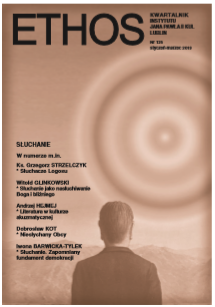Wyrażenie „Polish death camps” i jego innojęzyczne odpowiedniki. Komentarz lingwistyczny
The Expression ‘Polish death camps’ and its Equivalents in other Languages: A Linguistic Commentary
Author(s): Henryk DudaContributor(s): Małgorzata Promińska (Translator)
Subject(s): Language studies, Ethics / Practical Philosophy, Communication studies, Semantics, Comparative Linguistics, History of the Holocaust
Published by: Katolicki Uniwersytet Lubelski Jana Pawła II - Instytut Jana Pawła II, Wydział Filozofii
Keywords: Holocaust discourse; linguistic ambiguity; ethics in communication; ‘Polish death camp(s)’;
Summary/Abstract: The article discusses the issue of using the expression ‘Polish death camps’ and its equivalents in various languages. The author states that language structures and the act of communication are immanently ambiguous and to understand an expression it needs to be specified. The expression ‘Polish death camp(s)’ might be understood in at least two ways: (1) camps that are set in Poland, on the territory of Poland (based on location), and (2) camps set up and administrated by the Polish government, operated by Poles. The choice of one of those meanings depends on the statement and context as well as on the awareness of the recipient. It is conditioned by her personal experiences—social, political, cultural and so much more, at the same time being also conditioned by stereotypes. Even should we assume that all the parties involved show good will in public discourse, the usage of the expression(s) in question might lead to misunderstandings and establishing false historic beliefs about the actual perpetrators.
Journal: Ethos. Kwartalnik Instytutu Jana Pawła II KUL
- Issue Year: 32/2019
- Issue No: 1
- Page Range: 251-268
- Page Count: 18
- Language: Polish
- Content File-PDF

